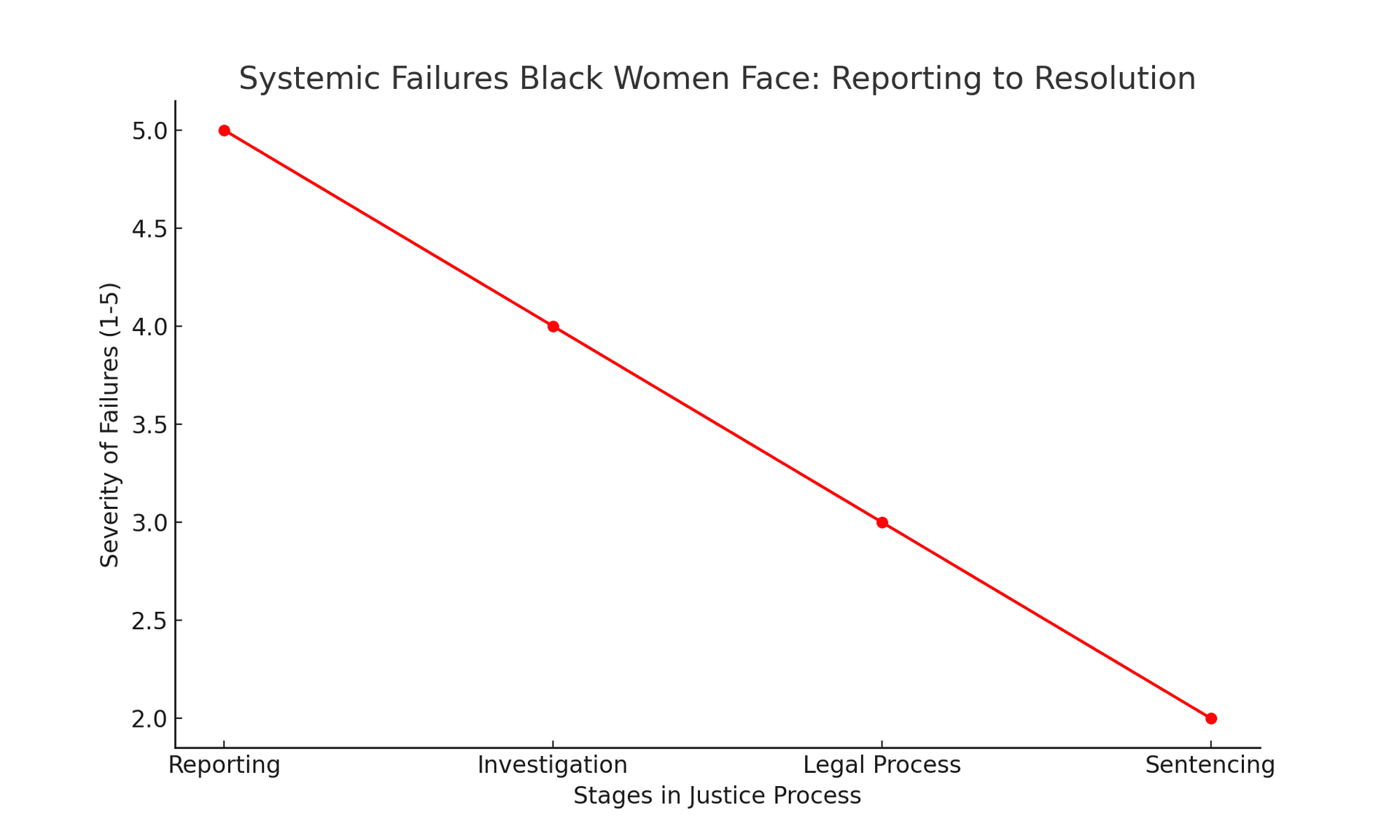Breaking the Cycle and Building a Future for Us
Sis, let’s talk about cycles—the ones we didn’t ask for but somehow find ourselves stuck in. The cycle of neglect, the cycle of violence, and the cycle of being unheard. For too long, Black women and girls have been left behind in a world that claims to see us but refuses to truly hear us. It’s time to break that cycle.
This isn’t just about fighting back—it’s about reclaiming what’s ours: our voices, our safety, and our future. Because let’s be clear, nobody’s coming to save us. So, we’re stepping up to save ourselves.

The Weight We Carry
When we say Black women carry the weight of the world, it’s not just a saying—it’s facts. In Milwaukee, we’re more likely to face violence and less likely to receive justice. Did you know that Black women account for over 80% of intimate partner homicides in this city? (Urban Milwaukee, 2023).
But the weight doesn’t stop there. The systems designed to protect us often work against us. Police question our credibility, courts hand out lenient sentences, and community resources are spread too thin to meet our needs. It’s a constant fight just to be seen.
Why It Keeps Happening
Sis, let’s break this down. The neglect we face isn’t random—it’s systemic. It’s built into the institutions that are supposed to protect us. Here’s what’s really going on:
- Systemic Racism: The justice system wasn’t built for us, and it shows. From dismissive officers to weak sentencing, Black women are treated as an afterthought.
- Economic Disparities: Poverty and lack of access to quality housing and education make us more vulnerable to violence and neglect.
- Underfunded Resources: Programs meant to support victims are often underfunded and inaccessible, especially for Black women who need culturally relevant care (Milwaukee Courier, 2023).
This isn’t just a coincidence—it’s a system that needs to be dismantled.

This timeline outlines the stages of systemic failure Black women face when navigating the justice system—from reporting abuse to sentencing the perpetrator. It visually tracks the severity of these failures, including dismissive responses, lack of investigation, and lenient sentencing.
Breaking the Cycle
Here’s the good news, sis: cycles can be broken. And we’re the ones who can do it. The Victim Retribution Network (VRN) is about creating solutions that work for us. Here’s how:
- Empowering Survivors: Through advocacy, we’re pushing for stronger protections and harsher penalties for perpetrators. But it’s more than laws—it’s about making sure every survivor feels seen and supported.
- Healing Together: Healing isn’t just personal—it’s collective. Programs like mindfulness workshops and expressive writing sessions give us the tools to process our pain and rebuild our strength.
- Rebuilding the Village: Initiatives like the Clean Streets Program bring us together to take pride in our neighborhoods. It’s about more than cleaning up—it’s about creating spaces where we feel safe and connected.
The Vision for Our Future
Sis, imagine a future where we’re no longer fighting just to survive. Where Black women and girls are celebrated, supported, and protected. That’s what we’re building with the VRN. This isn’t just about us—it’s about the generations coming after us. It’s about creating a world where our daughters don’t have to fight the same battles we did.
How You Can Help
Breaking the cycle takes all of us. Here’s how you can join the movement:
- Donate: Your contributions help us fund programs that directly impact survivors and their families.
- Volunteer: Whether it’s hosting workshops, joining community cleanups, or lending your voice to advocacy efforts, your time matters.
- Spread the Word: Share our mission with your network. The more people who know, the stronger we become.
Together, we can turn pain into power and build the future we deserve. For more information about the Victim Retribution Newtwork, leave your information in the contact section and i'll be sure to reach out.
With love and purpose,
Ebony 💜

Sources Cited
Urban Milwaukee - Women of Color Face Elevated Rates of Domestic Abuse and Homicide: https://urbanmilwaukee.com/2023/08/05/women-of-color-face-elevated-rates-of-domestic-abuse-homicide/
Milwaukee Courier - Trauma and Systemic Inequities as Root Causes of Domestic Violence: https://milwaukeecourieronline.com/index.php/2023/11/04/new-data-shows-trauma-and-systemic-inequities-as-root-causes-of-domestic-violence/
